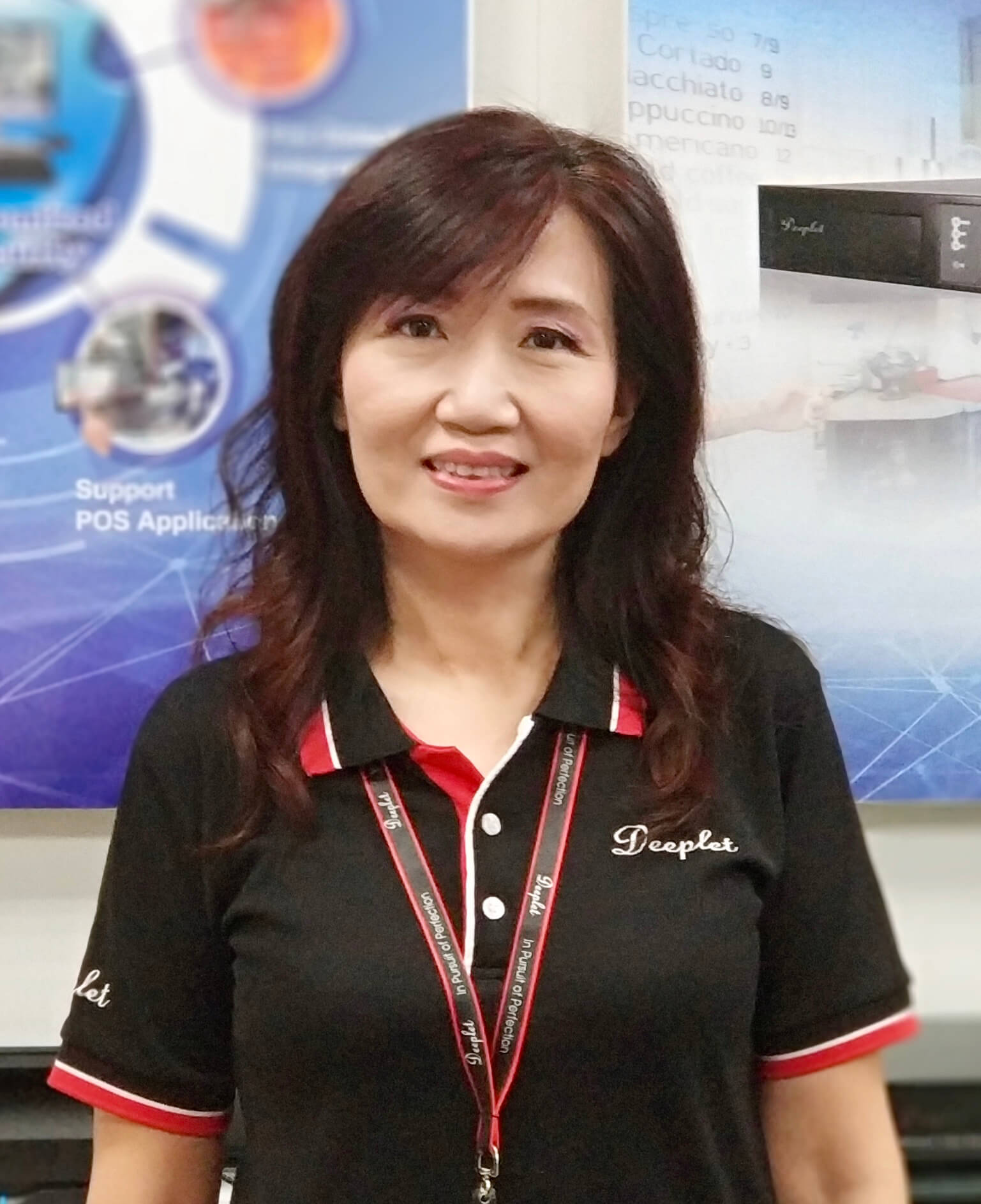In terms of technology trends in the U.S., AI and covid-19-related solutions have gained more and more interest and inquiries. In this regard, Taiwan companies has solutions that respond to these trends.
In terms of technology trends in the U.S., AI and covid-19-related solutions have gained more and more interest and inquiries. In this regard, Taiwan companies has solutions that respond to these trends. Further, while covid-19 will have some impact on their US sales, Taiwanese companies are still cautiously optimistic about the US market this year.
The topic of AI- or deep learning-based video analytics had been much ignored in the U.S. in the past few years, yet interest and inquiries have increased after the end users realized the benefits of video analytics, whether on edge or in the cloud, for object detection, recognition and smart search purposes. Taiwan companies, then, can use these analytics to help customers solve various requirements in their projects.
“Technology-wise, inquiries from the U.S. are mostly about AI in applications such as mask detection, objection detection and face detection. And yes, we have these analytics in our cameras,” said Fiona Hsieh, Manager of Sales at
Dynacolor.
“3S not only provides cameras with onboard analytics for example LPR, face detection and temperature detection, but also designs VMSes that do video analytics and collect big data in the 3S cloud computing solution. It’s easy for our SIs to design the security system for different projects,” said Kevin Cheng, Senior Manager for Sales and Marketing at
3S System Technology.
 David Liu, President,
David Liu, President,
VIVOTEK USA
VIVOTEK, meanwhile, had been planning to demonstrated related products in this year’s ISC West which is now postponed to 2021. “We were planning to showcase a wide range of solutions: panoramic cameras that offers 180-degree view, fisheye cameras that provide 360-degree/surround view, embedded cybersecurity cameras, license plate capture/recognition cameras, and our advanced video content analytics such as smart motion detection, loitering detection, face detection, and running detection which will be released soon to detect running behavior as an event type, an ideal VCA solution for banks, retail stores, and correction facilities,” said David Liu, President of
VIVOTEK USA.
In terms of facial recognition, it is also seeing more deployment in the U.S., albeit mostly in the law enforcement sector. “More and more police agencies are using facial recognition, capturing faces and matching them against the database in the backend. Yet in the private sector, the use of facial recognition still carries privacy concerns and has not yet become a common practice,” said Lilian Yao, Sales Director at
Deeplet.
“We believe the use of facial recognition in the U.S. still carries certain concerns. That’s why we developed AI-based engines to perform license plate recognition, object recognition and object counting. We believe that traffic management is a huge market in the U.S. Policing or state government agencies can use AI in traffic management, for example capturing illegal parking and illegal turning on red light, counting the number of vehicle, tracking vehicle and handling entrance control based on vehicle plate or type,” said Rex Hsu, Director of Global Business at
LILIN.
COVID-19
Meanwhile, COVID-19-related solutions are picking up in the United States, the country most devastated by the disease. To prevent the coronavirus’ further spread, end users are turning to body temperature cameras and mask detection solutions, especially at a time when end user entities are reopening their businesses.
“Thermal detection applications are also getting more and more attention for COVID-19 prevention since fever is one of the possible symptoms for the COVID-19. These technologies could be AI-related and certain machine training may be necessary to get the best result,” said Danny Chen, Product Director at
AVTECH.
Taiwan companies can provide related solutions in this regard as well. “LILIN's latest solution is a camera designed to screen individuals for elevated temperatures using thermopile technology to reduce direct contact between humans. With NVR and AI mask during temperature checks, LILIN's solution is valuable and cost effective to the market,” Hsu said.
3S, meanwhile, has also rolled out a thermal imager that combines three much-needed functions: body temperature detection, mask detection and people counting. The benefit is the end user will no longer need visible cameras to do all three functions, and privacy issues associated with visible cameras can be avoided.
Coronavirus impact
 Lilian Yao, Sales
Lilian Yao, Sales
Director, Deeplet
Now a global pandemic, covid-19 has thus far infected nearly 14 million and killed nearly 600,000 worldwide, forcing many companies and suppliers to shut down. However according to the Taiwan companies, supply chain disruptions have been kept at a minimal as they get most of their supplies from Taiwan, which has stayed relatively safe amid covid-19.
“We get most of our supplies from Taiwan, and there was no supply shortage issue,” Yao said.
“We already prepared stocks for Lunar Year and that helps us to mitigate the first wave of the COVID-19 outbreak in Q1. Now, most of our supply chain partners are back to work,” Liu said.
“We did encounter some components shortage in February and March this year, but now the shortage is no longer existed,” Chen said.
“The impact rate for our product supply is about 15 percent due to COVID-19 outbreak,” said Juber Chu, CEO of
ACTi.
As for their outlook for the US market this year, most companies agree covid-19 will have some impact on their US sales, but it won’t be that significant.
“The COVID-19 crisis has affected and will affect every business in all industries this year. However, security manufacturer such as VIVOTEK and others in the surveillance industry, like our SI partners, have been identified as essential business by US Department of Homeland Security and can remain open during the coronavirus crisis,” Liu said. “Our operation in US anticipates slower than expected growth as the supply and demand will be slower under the current environment. However, with our operation still open, we are able to ship out orders as they come in with minimal impact.”
“Based on my observation, the impact will be bigger on the channel side. Certain projects, for example government projects, will proceed as usual. So both our brand and OEM businesses in the US will focus on projects to maintain growth,” Hsu said.
Then, certain Taiwan companies point out that the impact of the U.S.-China trade dispute will more than offset impact from covid-19. “We think this year could be a tipping point for Taiwan CCTV manufacturers to get over the long-time difficulties brought by China thanks to the U.S.-China trade war, and we do actually get benefits from it. Many US distributors/importers are looking for non-China solutions, and AVTECH is always in their search list,” Chen said. “Though the COVID-19 outbreak is out of expectation and the pandemic still progresses, we’re still optimistic for the US market sales growth this year.”
“The situation has gotten better amid the current business climate. Three to four years ago we didn’t get much RFQs (request for quotes), and even if we did, what they offered was pretty much the same as our cost. But now we’re receiving more and more inquiries,” Hsieh said.
“Undoubtedly covid-19 is quite serious. Yet, with US government banned from using certain Chinese products, Taiwan brands can capitalize on this opportunity and make more inroads into the US market,” Yao said. “We’ve invested in R&D for 15 years, with strongly professional capabilities to provide customized solutions and especially emphasize the vertical and horizontal integration to expand the applied market. We expect improved sales due to a possible recovery in the second half and are quite optimistic about it.”